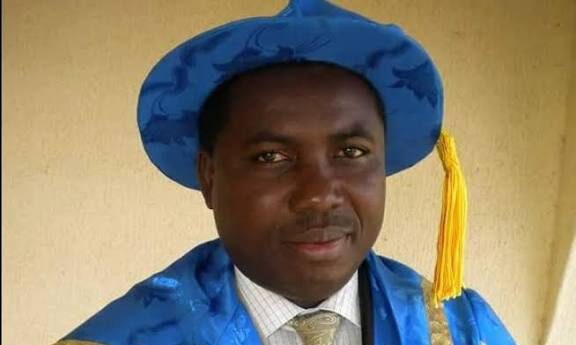The African Democratic Congress (ADC) has called on the newly appointed Chairman of the Independent National Electoral Commission (INEC), Prof. Joshua Ojo-Amupitan (SAN), to demonstrate unwavering loyalty to Nigerians and rekindle public trust in the nation’s electoral process.
In a statement released in Abuja, the party’s National Publicity Secretary, Bolaji Abdullahi, urged the INEC boss to bring a renewed sense of purpose and integrity to the commission.
According to the statement obtained by The News Chronicle, Bolaji noted that the ADC expected Ojo-Amupitan to “have a personal ambition to do better and restore the confidence of Nigerians and the world in Nigerian elections.”
According to Abdullahi, “He must understand that his loyalty is with the Nigerian people, not the government.”
The party spokesman said the ADC was prepared to give the new INEC chairman “the benefit of doubt based on his track record,” but reminded him that the current appointment was an opportunity to either “make a good name for himself that his children would be proud of, or to soil his record and end up with ignominy.”
He further cautioned that the INEC chairman’s tenure “will ordinarily last beyond one electoral cycle,” and therefore urged him to “look beyond the interest of those who have appointed him.”
In a related development, Abdullahi reacted to the latest World Bank report on Nigeria’s poverty rate, urging President Bola Tinubu’s administration to implement people-centred economic policies that prioritise the welfare of citizens.
The World Bank’s October 2025 report revealed that the number of Nigerians living below the poverty line had risen to 139 million, up from 81 million in 2019.
Abdullahi lamented the rising cost of food and inflation, noting that about 70 percent of Nigerians now spend most of their income on food, leaving little or nothing for other basic needs.
He cautioned against the continued use of Nigeria’s domestic poverty threshold—approximately N137,000 per month, or about $90—arguing that it falls far below global standards and misrepresents the true state of poverty in the country.
“In reality, however, they would have become invisible to a policy that mistakes low expectations for progress. A poverty line that is set too low does not protect the poor; it hides them,” Abdullahi warned.
He emphasised that what Nigeria urgently needs are policies that “put the people first,” promoting inclusive growth through deliberate strategies that enhance food security, create jobs, and strengthen social protection systems.
According to him, such people-oriented economic reforms would help cushion the impact of hardship and protect the 139 million Nigerians currently living in poverty.



